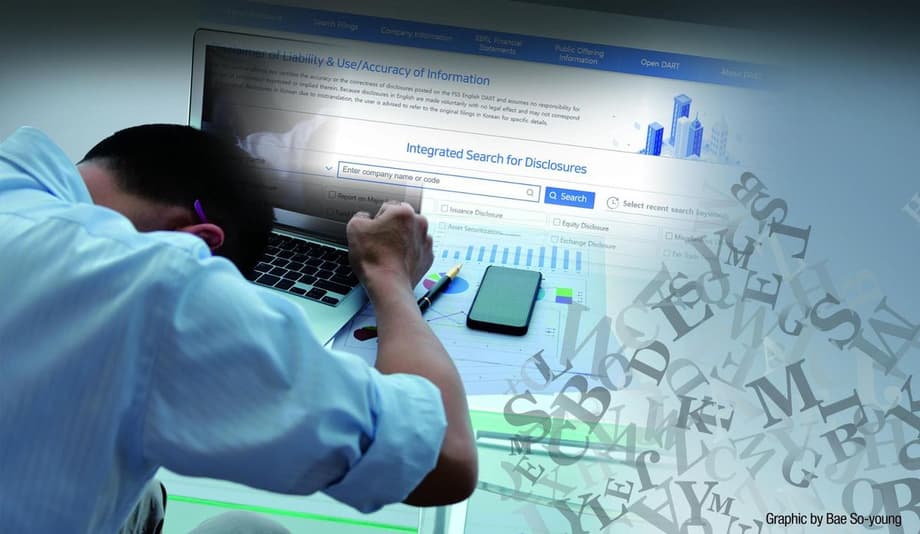Why Korea is moving to English disclosures
Korea is preparing a major expansion of English language corporate disclosures to open its markets to more overseas capital and to reduce what many call the Korea discount, the long running gap between the valuation of Korean companies and their peers abroad. By 2028, all companies listed on the KOSPI are expected to file key disclosures in English, not only in Korean. Policymakers hope that a fuller flow of readable and comparable information will help foreign investors judge governance, related party transactions, and internal controls with greater confidence, leading to higher participation and fairer pricing.
- Why Korea is moving to English disclosures
- What the new rules change and when they take effect
- Translation burden grows for companies, especially smaller issuers
- XBRL and digital reporting need fixes to support accurate English filings
- Managing legal risk and consistency across languages
- Investor relations and governance effects foreign investors seek clarity
- Can support measures ease the load
- What to Know
The plan, unveiled by the Financial Services Commission (FSC), is part of a broader push to modernize market infrastructure. Regulators argue that transparency must match global norms, and that language remains a real barrier. While many large companies already provide some English materials, gaps in coverage and timing have limited their usefulness. The new rules seek to standardize what gets translated, when it must appear, and where investors can find it in a single, reliable platform.
Officials frame the change as a foundational step that complements other market access reforms. In recent years, Korea moved to remove the foreign investor registration system, made omnibus accounts easier to use, and simplified some over the counter transaction reporting for international participants. The expanded English regime is intended to complete that picture by reducing the information gap that has persisted despite strong corporate earnings and world class industries.
What the new rules change and when they take effect
Today, only the largest KOSPI issuers, those with assets of at least 10 trillion won, must provide English disclosures on a defined set of items. Beginning May 1, 2026, the obligation will expand to companies with assets of 2 trillion won or more, a jump that brings the number of affected issuers to roughly 265. The scope of required English items will also grow, from 26 to all 55 disclosure items, and it will reach other Korea Exchange filing categories, including fair disclosures that release material information to the market.
The regulator’s objective is universal coverage on the KOSPI by 2028. A similar requirement for large cap firms on the Kosdaq is under review. To make the system workable, the FSC has said it will issue an English disclosure glossary, improve the translation support available through the exchange, widen the range of companies eligible for help, and roll out better digital tools. A dedicated English disclosure infrastructure within the Financial Supervisory Service’s DART system is planned for completion by the end of the year, with an emphasis on searchability and consistency.
These steps build on changes that were designed to make Korea more accessible to international funds. Authorities scrapped the requirement that foreign investors obtain a separate registration before trading, made it easier to operate omnibus accounts that hold many investors’ positions under one umbrella, and shifted some checks to ex post oversight. Easier access loses some value if crucial filings are not readable in English. The disclosure upgrade aims to close that gap in a structured, phased way.
Translation burden grows for companies, especially smaller issuers
Industry officials and corporate advisers say translation costs and staffing will rise, sometimes sharply. Large conglomerates already maintain investor relations teams and language professionals, but many mid sized and smaller listed companies do not. Building a process to translate sensitive, technical disclosures on tight deadlines will require new hiring, training, and vendor management. That can be expensive, especially for firms with thin margins or limited administrative capacity.
There are also risks tied to the quality and consistency of translations. If English text deviates from the Korean original, disputes over meaning can arise. Differences in how accounting and legal standards are interpreted can complicate even careful translations. Companies worry about liability if a translation error misleads investors, even if the Korean version is accurate. Investor relations personnel, accounting teams, and outside counsel will need to coordinate more closely to reduce the chance of mismatches across languages.
Experience abroad suggests the concern is real. A 2024 survey of Japanese companies found that a large majority view English disclosures as burdensome. Japan’s exchanges have pressed for more English reporting by major issuers starting in 2025, and professional service providers there are rolling out quality control offerings that go beyond literal translation. These programs combine accounting expertise, disclosure practice, and language review, which is often what investors expect when they rely on English filings to make decisions.
Lessons from Japan
Japan’s recent requirements for prime market companies highlight two practical points. First, dual language filing is not simply a language task. Translators must understand accounting policies, footnote conventions, and regulatory phrasing. Second, timing matters. If the English version lags or differs from the Japanese original, investors start to question which version to trust. That can increase, not reduce, uncertainty. Japanese firms have responded by creating internal style guides, building translation memories, and using professional review services that check consistency and explain accounting choices in plain English.
Global context
Regulators in other major markets are also expanding disclosure duties that require English content, either directly or through mandatory translation of documents. In the United States, updates to the Hart Scott Rodino pre merger notification rules require English translations of foreign language materials submitted in merger filings. In India, the Securities and Exchange Board’s rules on disclosing shareholder agreements show how aggressive transparency initiatives can create heavy workloads and legal complexity. Korea’s plan sits within this global trend, where more information is demanded and the depth of detail grows, even as companies try to control compliance costs.
XBRL and digital reporting need fixes to support accurate English filings
To scale English disclosures across hundreds of issuers, digital reporting must work reliably. Korea uses XBRL, an international standard that turns financial statements and related data into a structured, computer readable format. In principle, XBRL helps investors analyze companies quickly and compare like with like. In practice, Korea’s ecosystem needs improvement. Korea is the only country that requires companies to use an editor developed by the Financial Supervisory Service. While the editor carries international certification, users and auditors have pointed to flaws, including cases where Korean text appears in sections that are supposed to be in English.
Concerns about quality control are not academic. During a National Assembly audit, lawmakers were told that nearly 47 percent of XBRL filings contained some type of error. An airline official, facing the 2028 English obligation, said that although XBRL has been rolled out, its practical utility is limited and better integration with English workflows is essential. If the tagging system and the translation step do not align, companies will struggle to maintain consistency across versions.
DART and a dedicated English portal
The FSC says it will expand automated machine translation services, add English search functions for Korean filings, publish a standard glossary, and upgrade the interface that global investors use. A more intuitive, English first environment inside the DART portal should make it easier to locate the latest versions of each filing and to read them in a clean layout. The Korea Exchange’s translation service will be streamlined and offered to more companies. These steps would not remove the need for human review, but they could reduce repetitive work and cut down on formatting issues that slow publication.
Better digital tools also create indirect benefits. If companies can reuse approved phrases from a central memory and tag recurring data points the same way each quarter, they can move faster without sacrificing accuracy. Standardization is particularly useful for governance and related party disclosures, where wording differences can obscure trends over time. For investors, a stable taxonomy combined with consistent English phrasing supports comparisons across companies and industries.
Managing legal risk and consistency across languages
Companies face two legal questions as English requirements expand. Which language version governs if there is a discrepancy, and how should firms design a process that minimizes the chance of a mismatch in the first place. Korean law does not excuse misleading statements simply because they were made in translation. A declaration that one language controls can help, but it does not replace the duty to publish accurate, non misleading information. The safer approach is to invest in controls that keep both versions synchronized and to record the internal steps taken to check every passage that could be interpreted differently in English.
Governance matters here. Audit committees and boards should document how the translation process is overseen. That can include approval thresholds for highly material items, clear escalation paths when the Korean source is ambiguous, and a record of which parts were translated by machine and which by humans. These procedures do not eliminate risk, but they demonstrate diligence and can help defend the company’s approach if a dispute arises.
A practical playbook for issuers
Several practices can make the transition more manageable:
- Build a central glossary and style guide covering common accounting, legal, and industry terms, and keep it updated after each filing cycle.
- Create a translation memory so approved phrases and footnotes can be reused, preserving consistency and reducing time.
- Use machine translation for first drafts where appropriate, then require human review by subject matter experts before release.
- Set a version control policy that locks the Korean source before translation begins, and logs all edits made after translation starts.
- Train cross functional teams, including finance, legal, and investor relations, to flag passages that often cause confusion for non Korean readers.
- Pre agree service levels and escalation contacts with outside vendors, and run a dry run on at least one full quarterly cycle ahead of the deadline.
- Where possible, align XBRL tagging with the English text so data and narrative tell the same story.
Companies that build this foundation early will face less pressure at the deadline. They will also be better positioned to respond to investor questions, since their internal teams will know where to find the definitive wording and how to explain it.
Investor relations and governance effects foreign investors seek clarity
Market participants expect long term benefits from the shift, even if the short term workload is heavy. English filings make it easier for investors to revisit longstanding concerns about governance structures, related party dealings, and capital allocation policies. When disclosures are timely and comparable, active owners can press companies to explain complex transactions, clarify board independence, or justify cross shareholdings and internal controls. These questions feed directly into valuation, especially for companies whose shares trade below book value or below peer multiples.
Foreign business chambers have welcomed Korea’s direction, seeing alignment with international standards and a reduction in information gaps. Companies that build a track record of clear English communication tend to see stronger engagement on conference calls, in non deal roadshows, and around shareholder meetings. The payoff is not automatic. Trust grows when the English version arrives on time, matches the Korean original, and uses plain language that outsiders can follow. That is the bar many global funds apply when they invest in markets where they do not speak the domestic language.
What foreign investors look for
Investors consistently ask for a few essentials. They want completeness, which means all material items appear in English with the same detail as the Korean version. They want timeliness, so the English text does not trail the Korean release by days. They value comparability, both across companies and over time, which requires consistent phrasing and stable data tags. Finally, they expect machine readability. If narrative and XBRL tagged data move together, screening and analysis become faster, which can lift coverage and liquidity.
Can support measures ease the load
The FSC has pledged to expand support so that accuracy and timeliness improve without pushing compliance costs out of reach. The Korea Exchange translation service will be streamlined and offered more widely. An English glossary should reduce ambiguity for recurring concepts. The DART platform will receive upgrades that make English searches and document retrieval easier, and the regulator plans to use AI translation and related digital tools to keep wording consistent across updates.
These measures will help, but they are not a substitute for company side investment. Automated translation is useful for speed, yet it struggles with nuanced accounting footnotes, legal qualifiers, and context specific terms. Human review remains essential, especially on items that could move a share price. The most effective approach is a hybrid one, where AI tools handle repetitive lines and formatting while trained reviewers focus on the passages that carry the greatest risk.
Smaller issuers will need the most help. Extending subsidized translation support, offering template libraries for recurring forms, and publishing detailed examples of high quality English filings can shorten the learning curve. It also helps if the regulator clarifies how it will treat inadvertent errors during an initial adjustment period, as companies build up internal controls around dual language reporting.
What to Know
- All KOSPI listed companies are expected to provide English disclosures by 2028, with a phased rollout starting with firms that have assets of 2 trillion won or more on May 1, 2026.
- The list of required English items expands from 26 to all 55 disclosure items, and reaches other Korea Exchange categories, including fair disclosures.
- The FSC will publish an English glossary, expand translation support through the exchange, and build a dedicated English interface inside the FSS DART system.
- Companies expect higher costs and workloads due to translation, staffing, and quality control, especially among smaller issuers without in house teams.
- Quality and consistency risks are real. Firms face potential liability if English text differs from the Korean original on material points.
- Japan’s experience shows that dual language reporting is complex and often feels burdensome, yet services and internal playbooks can raise quality.
- XBRL can aid comparisons, but Korea’s current tools need improvements. A large share of filings have contained errors, and integration with English workflows must improve.
- Global investors welcome clearer English reporting, which supports deeper engagement on governance and can help address the Korea discount over time.












